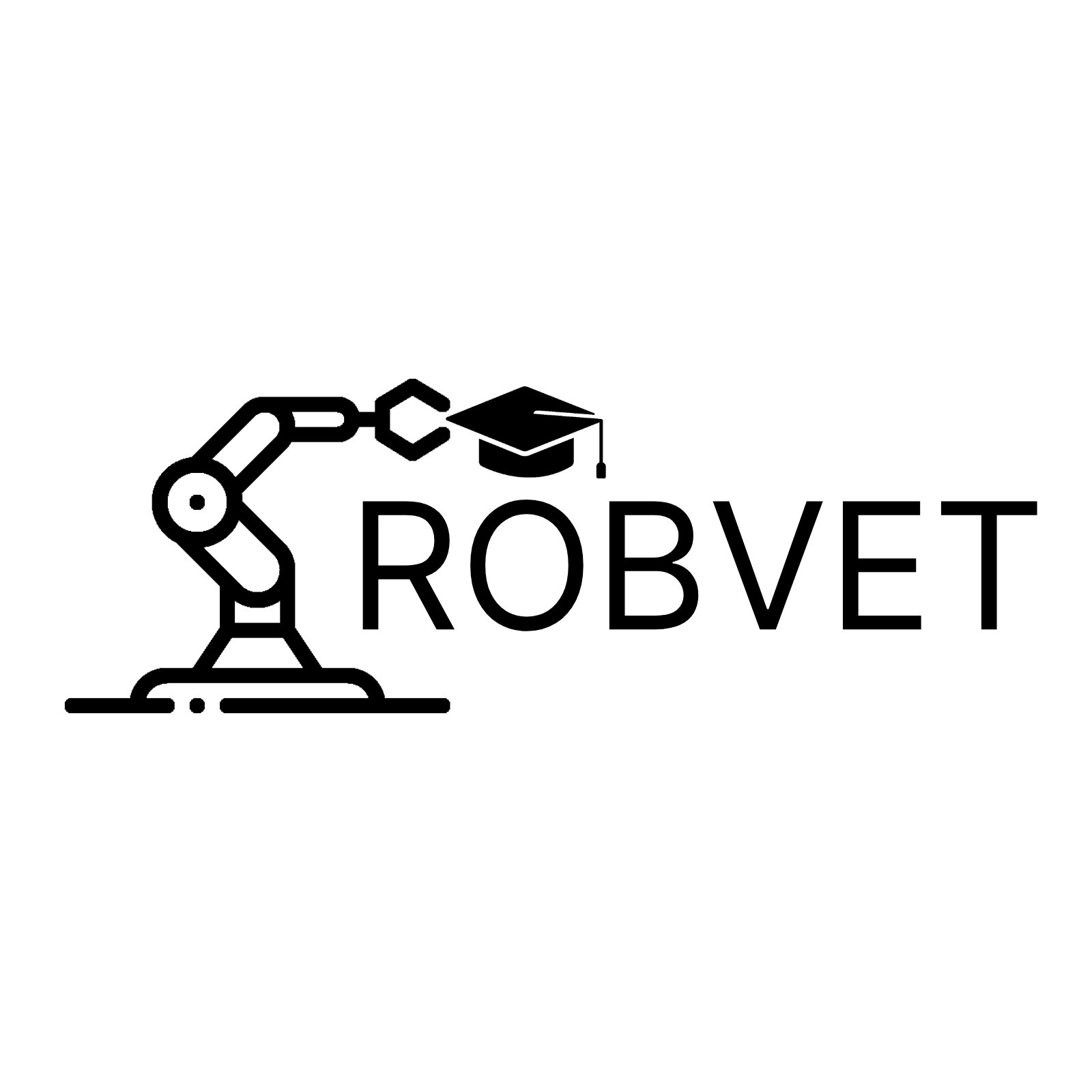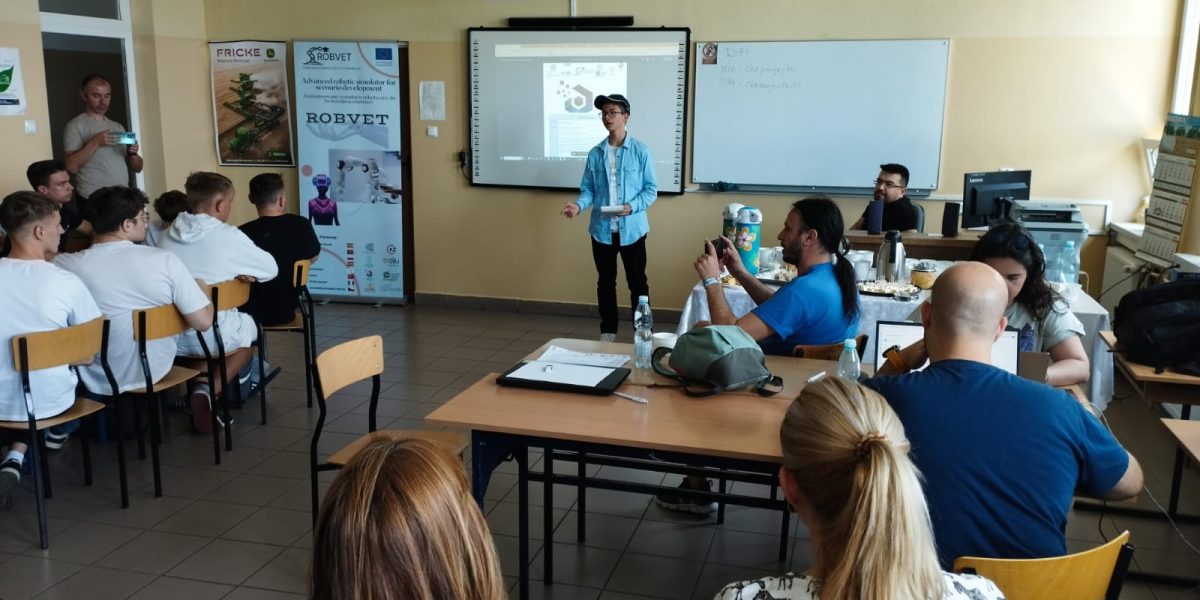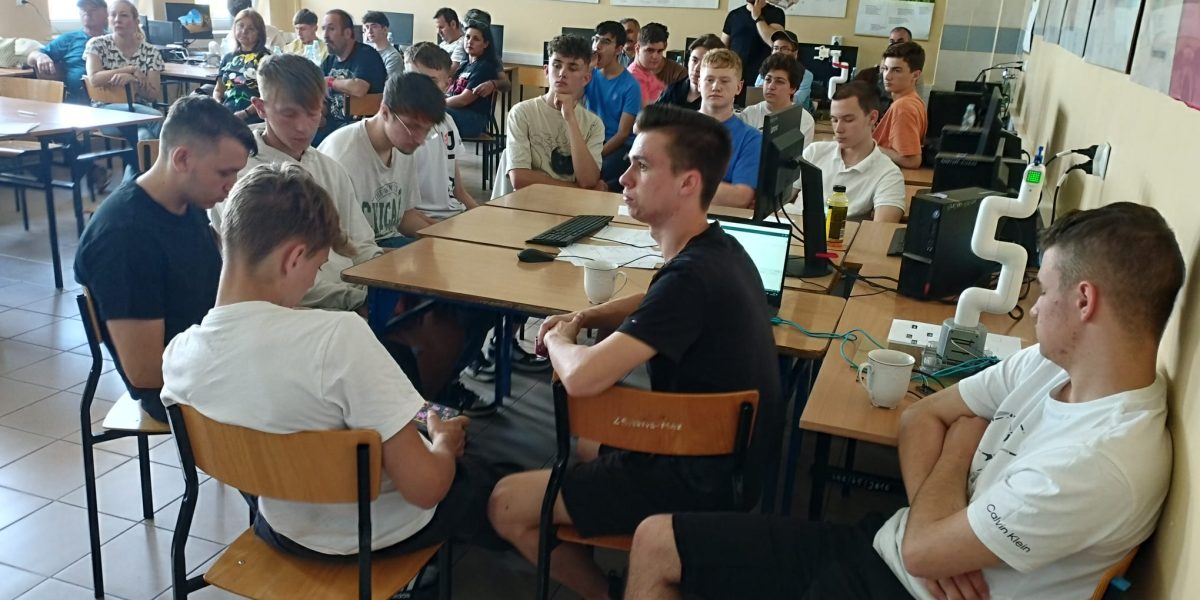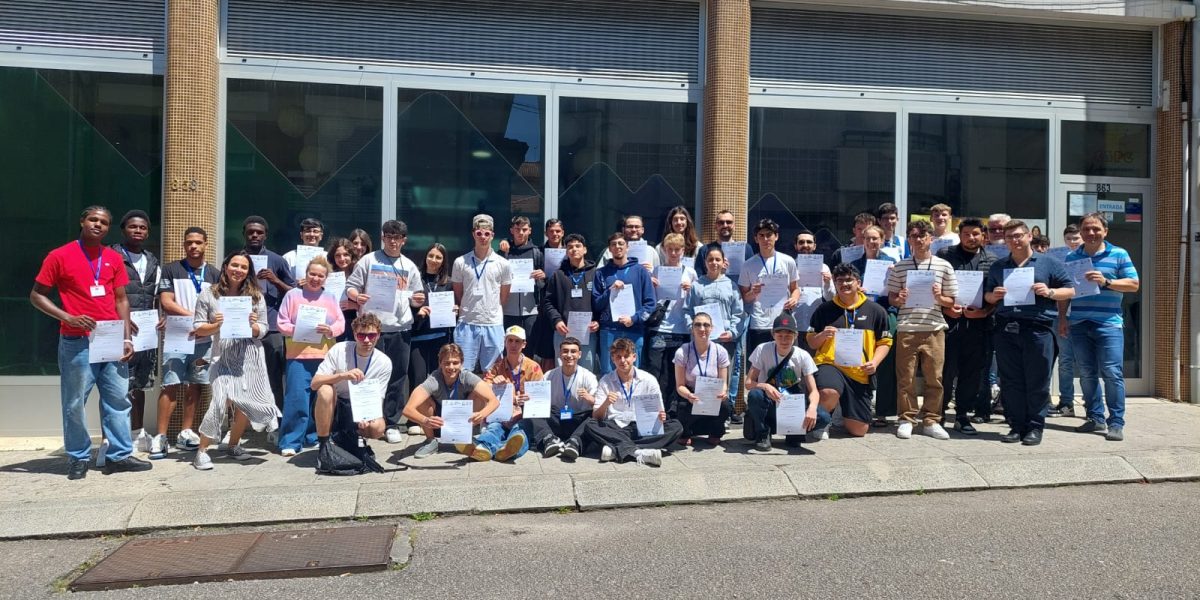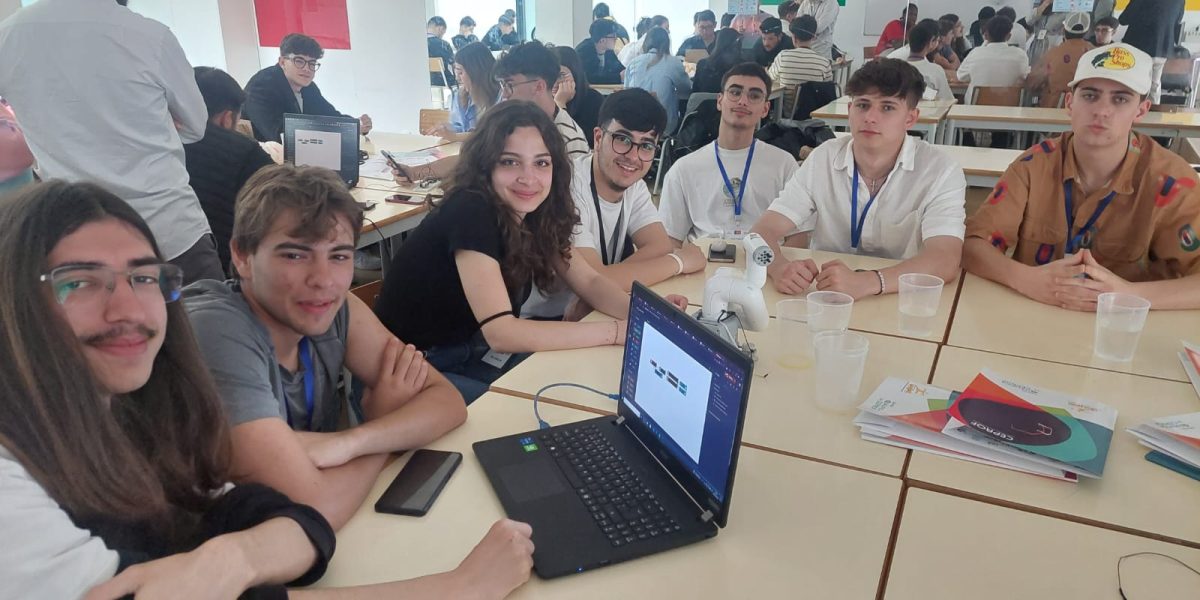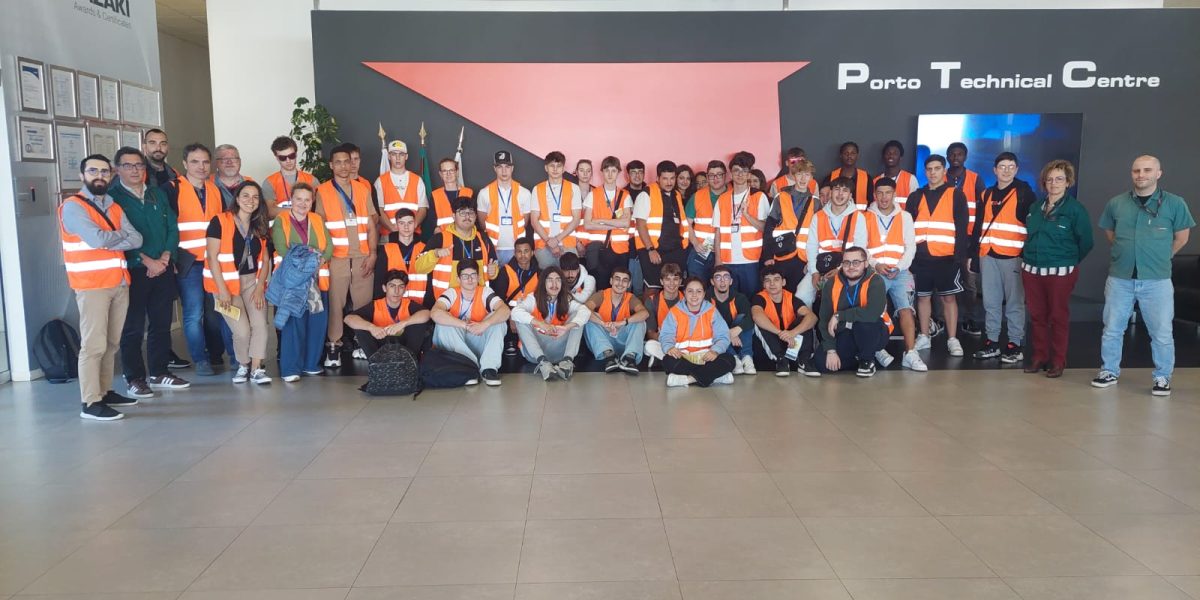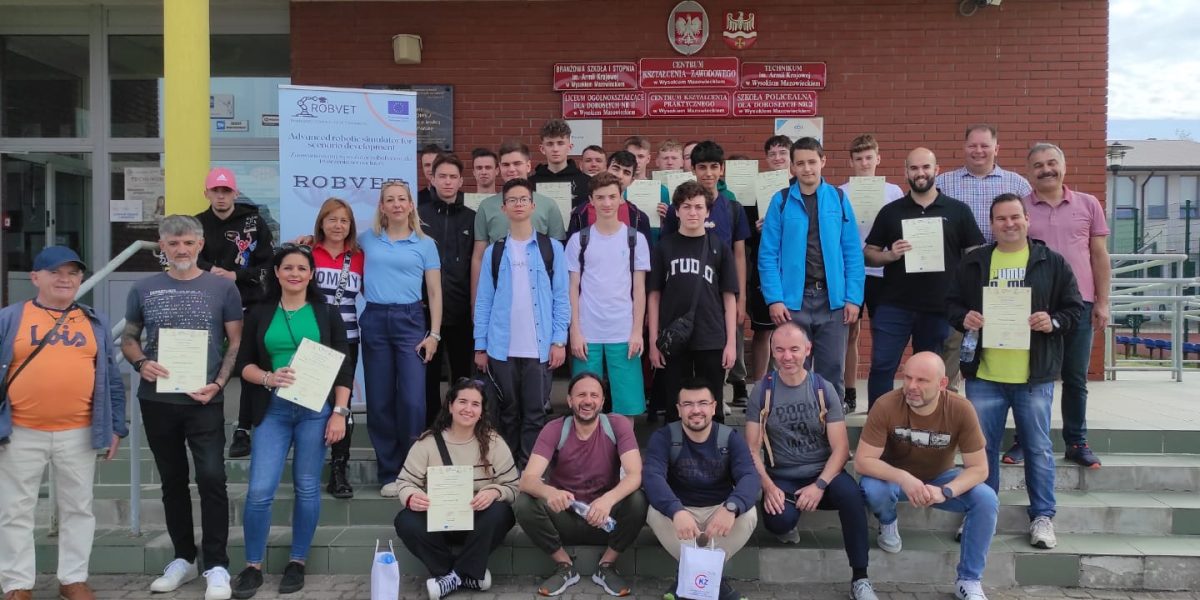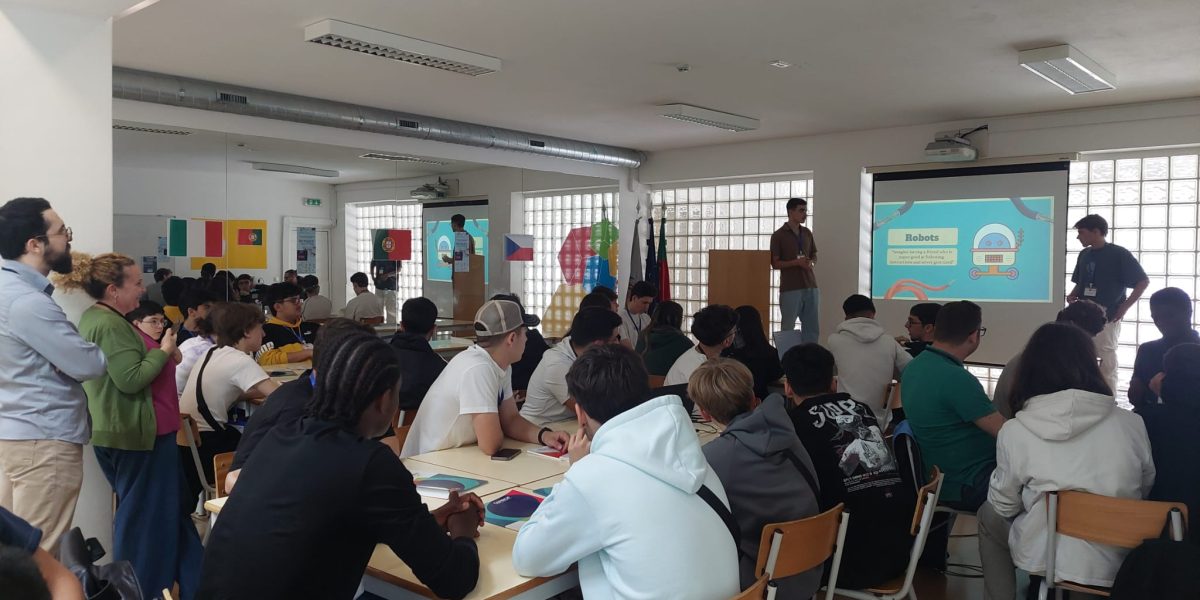Training 7 – Espinho (Portugal) & Wysokie Mazowieckie (Poland)
(May 27-30, 2024)
..
The seventh and final training of the ROBVET project took place from May 27th to 30th, 2024, simultaneously in Espinho, Portugal, hosted by CEPROF, and in Wysokie Mazowieckie, Poland, coordinated by CKZ. This training marked a key milestone, consolidating the development of the advanced robotic simulator and ensuring the effective implementation of the demonstrators in real vocational education environments.
Participants:
-
In Espinho, Portugal (CEPROF):
-
Partners from Portugal (CEPROF), Spain (IES Pablo de Olavide), Cyprus (Synthesis), and Turkey (Hi-Sac).
-
-
In Wysokie Mazowieckie, Poland (CKZ):
-
Partners from Poland (CKZ), Italy (Start Smart), and the Czech Republic (ARP).
-
